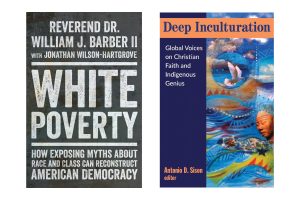I wanted to convert to Buddhism when I was 17. Raised by a Catholic family and forced to attend religious education classes until I was almost 13, I’d had enough of what I perceived to be an overly conservative institution that depended on “Catholic guilt” and strict adherence to doctrine. So I sought out a way to be spiritual, a way to be a good person without being handed a rule book on how to do it. Buddhism, I thought, would fulfill this need.
A year later I was a college freshman on the campus of one of the country’s largest Jesuit universities. A year after that I was confirmed in the Catholic Church, marking a complete 180-degree shift from my fling with Buddhism.
Despite my own spiritual journey back to Catholicism—a journey that is similar to that of many other young adults—media often reports that millennials like me are rejecting religion in droves. But in my experience millennials are just aligning themselves with new and more effective ways of practicing their faith.
As a 22-year-old on a Catholic campus, I would argue that millennials are more in touch with their faith than any other generation. For my peers and me, Catholicism takes on a range of different forms, from participation in Mass and religiously affiliated student organizations to a fierce dedication to service.
My personal faith manifests itself in what I do for those around me. I take part in my campus’ Labre organization, which provides food and friendly conversation to people experiencing homelessness in Chicago. You won’t find me in a pew every Sunday; you’re more likely to find me seeking God in quiet prayer on the beach while the sun rises or in discussions with my friends about the issues facing the world today.
I have seen my fellow millennials’ Catholicism shine in what they do with their lives. A friend of mine who is majoring in psychology has plans to counsel others using God’s message of faith and service. Another friend majors in advocacy and social change and intends to help those in need through nonprofit work. Even my business major roommate wants to make enough money to start a scholarship at her former Catholic high school that will provide a low-income student with the same chance to succeed.
Rather than rejecting their religion, I see young Catholics taking pride in their faith. Millennial-led media platforms like Buzzfeed feature articles and video clips on Catholicism. It appears, in articles such as one titled “21 frustrations that were too real for anyone raised Catholic,” that being Catholic is a unique experience of which we should be proud. It is something over which we bond.
In short, being Catholic is cool.
What is even cooler is that millennials are focused on social justice. In a 2014 Associated Press-GfK poll, 29 percent of millennials surveyed feel they have an obligation to service, a notable 10 percent increase from those under age 30 in a 1984 survey that asked the same question. This is what Pope Francis is all about.
Even millennials who do not identify as Catholic openly support Pope Francis and his teachings. I have seen some students sporting “I Heart Papa Francesco” shirts around campus, and the student center was packed for the live broadcast of his visit to the United States. His work with the poor and tendency for less papal glamour has set him apart from his predecessors. In a recent New York Times poll, 60 percent of non-Catholic Americans, including Protestants and non-religiously affiliated folks, rated the pope favorably. In comparison, 90 percent of Catholics gave Pope Francis good ratings.
In my experience, young people are keeping their faith in all things: in the work they do, in the friends they choose, and in the way they love each other. They are returning with open arms to the faith. Their desire to help and to bring justice to those who cannot help themselves roots their Catholic faith. Their faith is not about who comes to church every Sunday.
Mother Teresa is quoted as saying, “Do small things with great love,” and millennials have carried this aspect of their religion into everything they do. Perhaps, then, we are even more in touch with our religion and spirituality than our parents and grandparents were. It’s just the form our faith takes that’s different.












